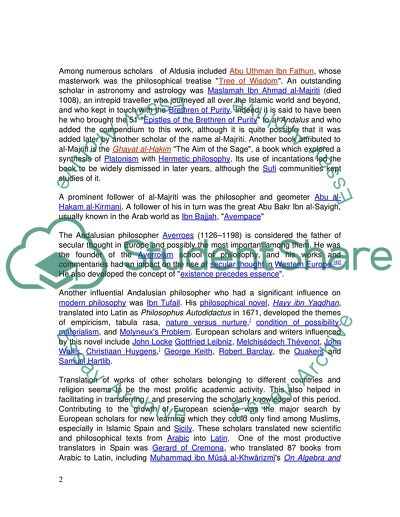Cite this document
(Intellectual Property in Andalusia Case Study Example | Topics and Well Written Essays - 2750 words, n.d.)
Intellectual Property in Andalusia Case Study Example | Topics and Well Written Essays - 2750 words. Retrieved from https://studentshare.org/law/1563595-intellectual-property-of-islamic-civilization-in-andalusia
Intellectual Property in Andalusia Case Study Example | Topics and Well Written Essays - 2750 words. Retrieved from https://studentshare.org/law/1563595-intellectual-property-of-islamic-civilization-in-andalusia
(Intellectual Property in Andalusia Case Study Example | Topics and Well Written Essays - 2750 Words)
Intellectual Property in Andalusia Case Study Example | Topics and Well Written Essays - 2750 Words. https://studentshare.org/law/1563595-intellectual-property-of-islamic-civilization-in-andalusia.
Intellectual Property in Andalusia Case Study Example | Topics and Well Written Essays - 2750 Words. https://studentshare.org/law/1563595-intellectual-property-of-islamic-civilization-in-andalusia.
“Intellectual Property in Andalusia Case Study Example | Topics and Well Written Essays - 2750 Words”. https://studentshare.org/law/1563595-intellectual-property-of-islamic-civilization-in-andalusia.


